As a Turkish lawyer, one of the main personal questions asked by my clients and friends when coming to Turkey is if they can use their home country driving licenses in Turkey.
Let me give you the answer right away.
As a general rule, all tourists and foreigners can use their home country driving license in Turkey for up to 6 months starting from the day that they enter Turkey. Provisional Driving Licenses are not accepted in Turkey. (Turkish Road Traffic Regulation Article 88)
There is no special requirement or permit for foreigners or non-residents in Turkey.
This post will share my information on using your driving license in Turkey and everything else you need to know while driving in Turkey.
I tried to be as simple as possible and bolded important places.
1. Can Tourists Drive with a Foreign Driving License in Turkey?
Tourists with a foreign driver’s license can legally drive in Turkey.
As a general rule, all foreign driving licenses are valid as long as they have a photo and are written in the Latin alphabet.
All British, American, Canadian, Australian, EU, Indian, Pakistani, and UAE driving licenses are valid in Turkey if they are not provisional and the driving license contains a photo.
Additionally, the age requirement for driving in Turkey is being over 18 years old.
With foreign driving licenses, tourists can drive in Turkey for up to 6 months after entering Turkey.
If your driving license is not written in the Latin alphabet, you can still use your driving license in Turkey. All you need to obtain a notarized translation of your driving license.
Obtaining a translation of your driving license is easy. The usual method is to use Turkish Consulate services in your home country.
Nevertheless, there is an easier method. In every major town, there are one or more public notaries. You can visit any one of them to acquire a notarized and translated copy of your driving license.
The notarization process will not take much time, but it will depend on the speed and availability of the translator. The cost will be around $60.
You do need to carry a translation of your driving license in Turkey. On the other hand, if you are to stay longer than a usual holiday, I advise you to obtain a notarized Turkish translation of your driving license.
This is the best practice that could help you to avoid any arguments. The British Government also advises this practice on their Turkey Travel Advice page.
Click to read specific guides for British driving licence holders and American driving license holders.
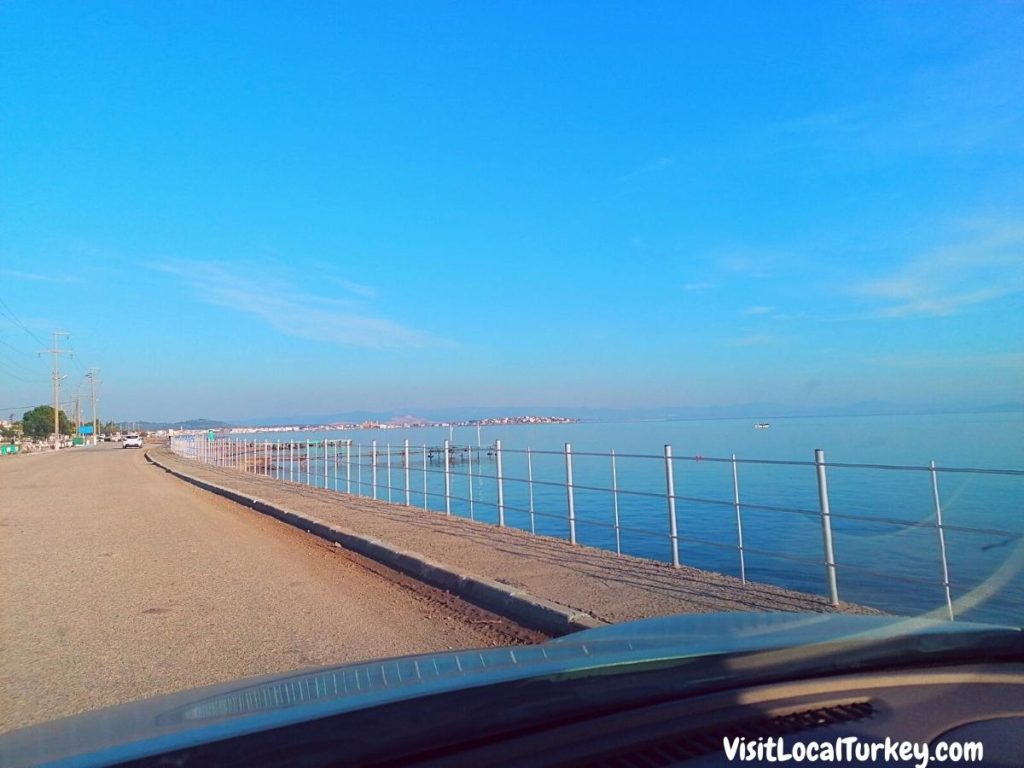
2. What documents do you need to drive in Turkey?
Turkish people have the compulsory duty to carry their ID cards with them at all times, and all foreigners/tourists are also expected to carry ID with them.
The valid ID for any foreigner is their Passport or Turkish Residence permit.
According to my own experience, generally, police ask for your passport and driving license. They are usually okay with seeing only your driving license in holiday towns.
Also, the Police may want to see your passport to check your entry date to Turkey. For this reason, you need your passport while driving.
If you are a citizen of the below-listed countries, your own country ID cards will count as a passport.
Also, you need to carry documents given to you when entering Turkey, and you may need them to prove your entry date.
Countries can enter Turkey with their ID cards. Germany, Belgium, France, Georgia, Holland, Spain, Switzerland, Italy, North Cyprus Republic, Lichtenstein, Luxemburg, Malta, Portuguese, Ukraine, Greece citizens can enter Turkey with their national ID card. Source: Turkish Foreign Ministry

3. Can You Rent a Car in Turkey with a Foreign Driving License?
Non-residents and foreigners can rent a car with a foreign Driving Licence in Turkey. Some rental companies may deny renting a car to people who are younger than 21.
Most of the global car rental companies have offices in Turkey. You can hire a car from Avis, Hertz, Europcar, Alamo, Budget, and many other local and international brands.
Before renting a car, I usually check car rental companies’ scores and reviews at Discover Cars.
Renting from local companies with low ratings in Discover Cars may not be the best idea. Unknown companies with poor reviews may result in additional charges at the end of the contract.
You can further read about my renting car tips below in this post or check my guide specifically about renting a car in Turkey.
🚗💨 Ready to book your car rental? Click the link to book directly with Discover Cars, which searches all national and local companies to get you the best rates.
4. How long can you drive with a foreign driving license in Turkey?
Tourists or any foreigner, or even Turkish citizens, can use their foreign driving license up to 6 months after entering Turkey. (Turkish Road Traffic Regulation Article 88)
You need to replace their driving license with a Turkish Driving License at the end of six months. If you want a Turkish Driving License without any exams, read my article, 2 Ways for Foreigners to get a Turkish Driver’s License.
The six months do not indicate the total time you spent in Turkey during several trips. Every time you exit and enter Turkey, this duration will restart.
5. Should you use an International Driver’s License (IDB) in Turkey?
International Driver’s License is also accepted in Turkey. If you want to, you can use an International Driving License to drive in Turkey.
On the other hand, if you have a foreign driving license with a photo written in the Latin alphabet, you do not need it.
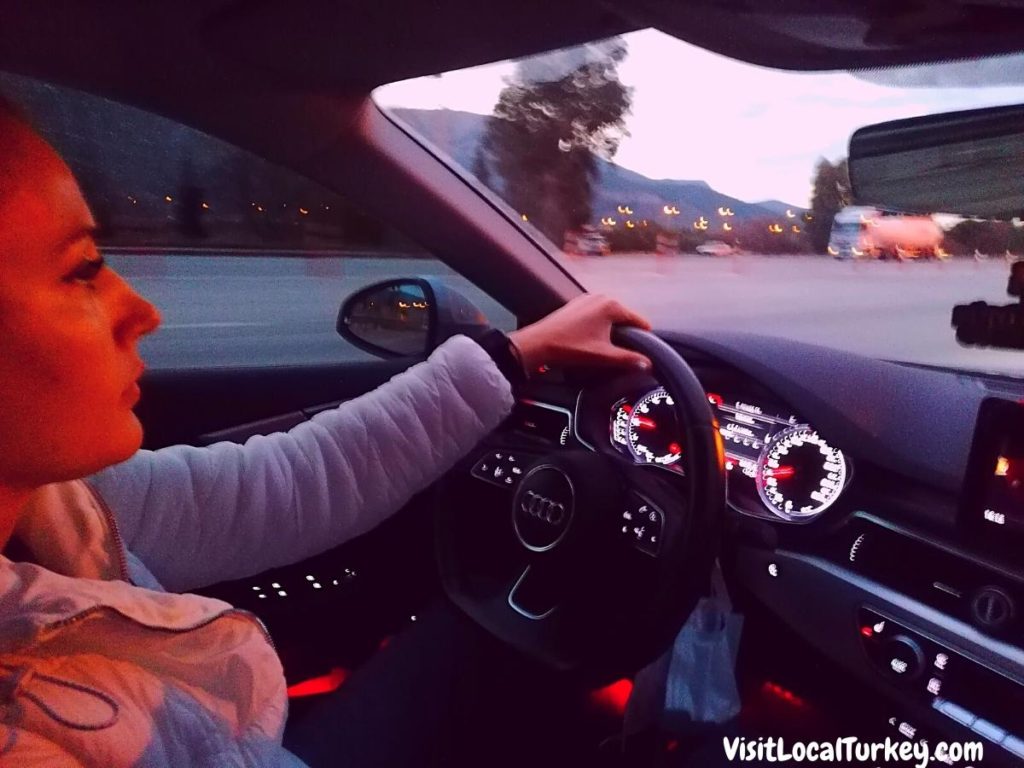
6. Is Turkey right-hand or left-hand drive?
Driving in Turkey is on the right-hand side of the road like in European countries and the USA. The Turkish traffic rules have no significant differences from other Western countries.
7. Is Driving in Turkey Safe?
Driving in Turkey is not the safest when compared with other European countries. Yet, Turkey is one of the safest places in the world to drive.
Turkey is riskier than Europe but the safest place in the Asia continent to drive. Also, Turkey is safer than the United States and most countries on the American continent.
Let me demonstrate my point. This is a graphic prepared by the World Health Organization. It shows death rates from road traffic accidents by country. (per 100,000 inhabitants)
You can see in the graphic that traffic safety in Turkey is better than the world average. Turkey is only outranked by European countries.
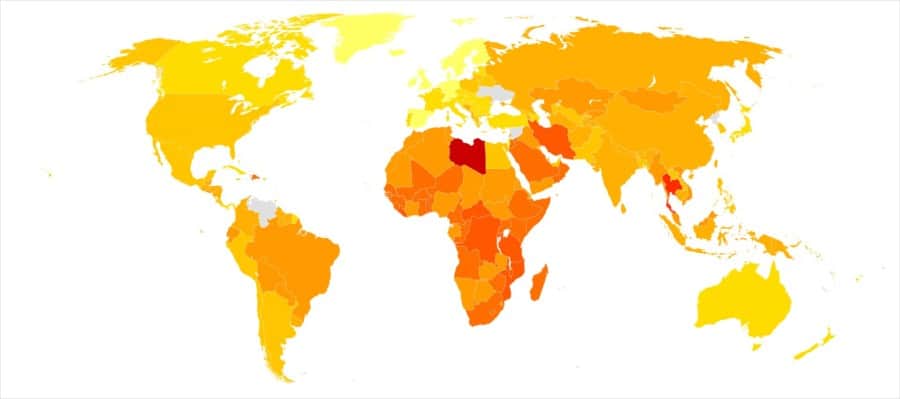
8. Roads in Turkey
From my experience, I can tell that Turkish roads are better than most European countries.
The Turkish road network is advanced, and major hubs are connected via highways.
Even in the villages, most roads are in good condition, and you can easily travel Turkish roads with regular cars.
Yet, SUVs may be required if you wish to go off the less beaten path and Eastern Turkey.
According to the World Economic Forum 2019 data, Turkish road quality is better than Italy, Greece, Australia and South Africa.
Turkey has a higher road quality than many European countries. (Click for WEF Road Quality Index) In road quality. Turkey ranks 32nd among 141 countries worldwide.
The best time to take a road trip and drive in Turkey is the summer and fall months. In winter, it can be snowy, and you may need winter tires.
9. Is it safe to drive in Istanbul?
Driving in Istanbul is very difficult. While the roads are in good condition and safe to drive in Istanbul, it can be hard to manage Istanbul’s congested traffic.
Istanbul traffic jams can be stressful for even a professional driver. Also, if you miss a turn, you could drive miles to return to the same place.
Istanbul has diverse public transport options. Instead of driving in Istanbul, use taxis and the metro.
Besides being cheaper, public transport may be more comfortable than driving. If you are planning to use a taxi, please read my taxis guide to learn how to avoid the worst taxi drivers.
If you are in the mood for driving, please read my article A Local’s Guide to Unique Day Trip Ideas from Istanbul
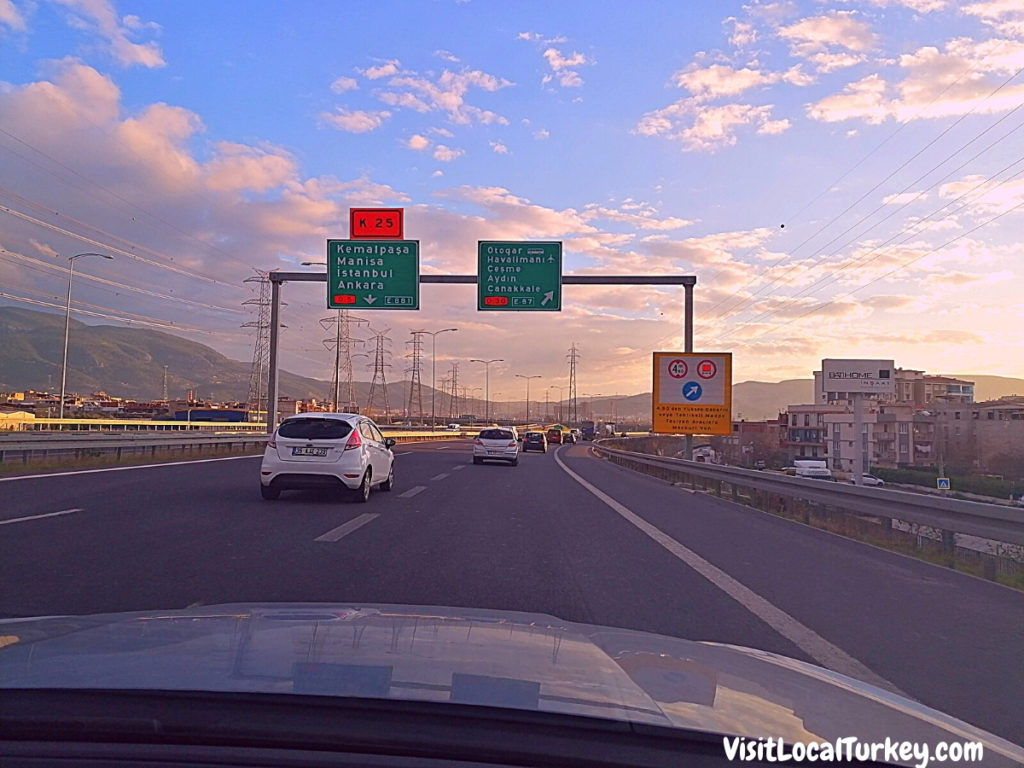
10. Is Driving Easy in Turkey?
Turkish traffic rules are within European standards, and there is no major difference. Yet, Turkish traffic has some unique behavior that can be stressful to adapt to.
Firstly, the Turkish driver’s mentality is different. I could write a separate article on the reasons for this sociological phenomenon.
Simply put, some warm-blooded Turkish drivers drive riskier compared with the average European driver.
My father always told me that a good driver is not a driver who drives well. A good driver is a driver who can foresee other driver’s mistakes and tolerate them.
In Turkey, drive defensively thinking that other drivers can make mistakes.
The second reason why Turkey is a bit riskier than Europe is geography.
Most of Europe is flat plains, while Turkey is a mountainous country. There are many roads with slopes. These roads are not dangerous, but you may need to get used to them.
As someone who has experienced driving in Asia and Africa, I can confirm that driving in Turkey is safe compared to all other Asian and African countries.
However, driving in Turkey is more energetic when compared to European standards.
Three special things, I should warn you about the Turkish Traffic
Flashing lights behind you and getting close to your car’s back is risky behavior that foreign drivers need to adjust.
Let me help you understand this Turkish driver’s behavior.
This translates to “I am faster than you, and give me the right of passage by moving to the slower right lane.”
Nothing personal in this behavior, I am not fond of this behavior as well, just move to the right lane and let the warm-blooded driver pass you.
Check out the holiday calendar for Turkish people before planning.
During public holidays’ start and end times, everyone wants to leave the city for some holiday. The traffic around Metropolitan areas like Izmir and Istanbul can be chaotic.
Start your road journey earlier, before 4 pm, when the workday finishes.
Even in the hottest parts of Turkey, it can be cold in the winter mornings.
Especially in the very early morning, glass-like ice can form on the road. It is invisible but very slippery. Drive slowly in the winter mornings.
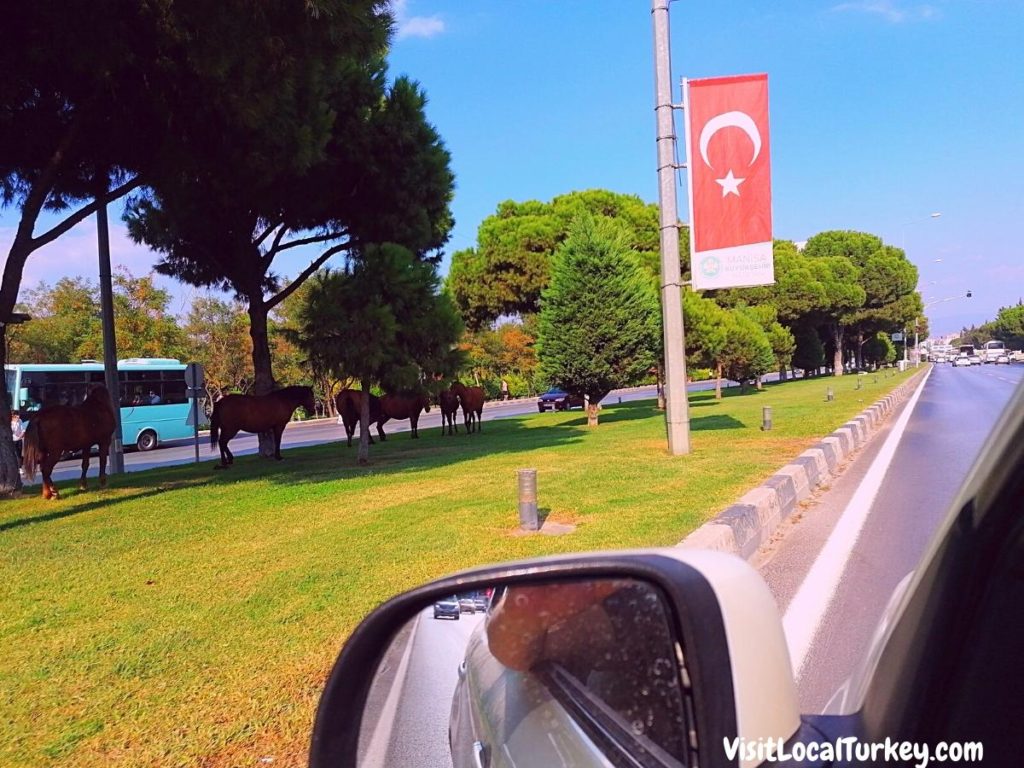
11. Simcard and Online Maps
Mobile internet coverage is very good in Turkey. Also, it is tough to find a spot without access to mobile internet. You can easily buy a sim card for your phone with data coverage when you arrive in Turkey.
This means you can use Google Maps or Yandex Maps to find your way around Turkey. These apps have pretty accurate road assistance services.
Most people use Yandex Maps in Turkey, but I like Google Maps.
12. Baby and Children Seats
The child seat is mandatory in Turkey for babies and kids shorter than 150 cm and under 36 kg. Fortunately, most rental car companies supply baby and child seats at your request.
13. Police Checks
Police checks are frequent, checkpoints are located at the exits and entrances of major settlements, and there are also random checkpoints.
If you are stopped at these checkpoints, this does not mean you did something wrong. These are both traffic and security control points.
I used to outrun these checkpoints in my stupid 20s, but those fun days are gone. Today, police forces are very strict. Never try something like that. They will chase you now.
Please drive slowly and carefully when nearing these checkpoints. Follow the lead of the police officers.
14. Roundabouts
This is the most confusing part of Turkish traffic.
Typically you should give priority to the traffic coming from the right. However, we do not follow this rule. Turkish people have a different understanding of this.
Turkish people tend to treat roundabouts as intersections, but our understanding may be illogical for a foreigner.
Follow the locals. Proceed carefully in roundabouts.
15. Pedestrians
This advice is not about driving but about walking. Never assume that the car will stop and give you the way when crossing the street. Even in the pedestrian crossings.
Be watchful when crossing the streets until you have some experience in the Turkish way.
16. Turkish traffic rules and speed limits
Here are some of the basic rules to follow to avoid getting fined by the police.
- The seat belt must be worn at all times.
- If you have children under 5, they must be seated in special children’s seats. All major rental companies provide children’s seats on request.
- The driver should not use a cell phone while driving; connecting your cell phone to your car via Bluetooth and using it hands-free is okay.
- The strangely parked cars on intercity roads with different antennas are usually police speed radars, and there are also lots of speed cameras for speed limits.
These are the general speed limits.
- 50 km / h (31 miles per hour) inside town and cities
- 90 km / h (55 miles per hour) on intercity regular roads
- 110 km / h (68 miles per hour) on intercity divided roads
- 120 km / h (74 miles per hour) on motorways/highways
17. Road Signs
Turkey uses the universal road sign system as well as the Latin alphabet. For this reason, road signs are easy to understand and read for English-speaking tourists.
Just a hint, you will notice brown-colored places on road signs.
These brown-colored places in road signals indicate unique attractions. For example, the sign above shows directions to the ancient city of Priene and the beautiful village of Doganbey Village.
You should check the location from Yandex Maps or Google Maps to see how far away they are. The brown traffic signs may signal the attractions miles away or just around the corner.
Knowing the attraction’s location will help you decide if you want to explore it or not.
18. How to park your car in Turkey?
In Turkey’s most urban areas, parking is free unless otherwise indicated in writing or forbidden by a sign. If in doubt, ask locals.
There are no parking meters in Turkey. Sometimes municipalities collect tolls from roadside parking.
The private sector also operates many parking lots. Parking will not be a problem if you are not in a condensed urban area.
TIP: If you are stuck in a metropolitan area, do not know what to do, use the hotels’ vale services. Drive in front of a hotel, and ask the help of the personnel.
This method may be more expensive than normal, but it is sometimes too chaotic to find a parking spot.
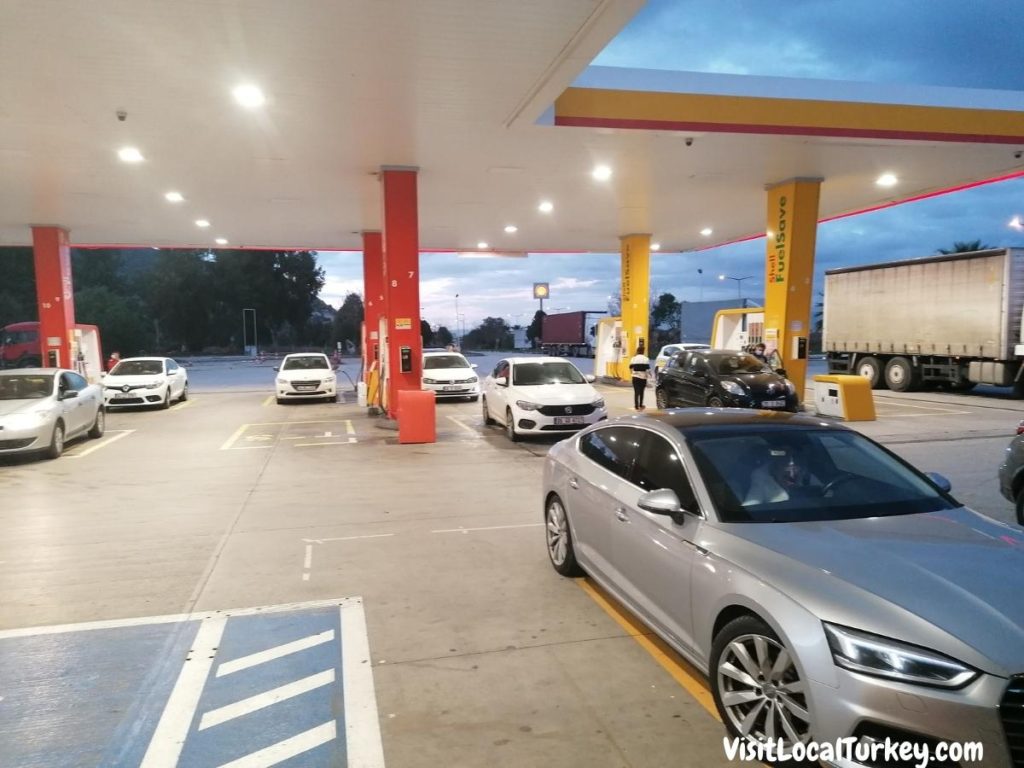
19. Fuel stations in Turkey
Everything can be cheap in Turkey but not the fuel. Turkish people use one of the most expensive gasoline in Europe.
You may think petrol stations are trying to scam you because you are a tourist, but gasoline prices are high in Turkey.
In Turkey, service members fill the gas for you. You pay by giving cash to service members, or you can go inside the gas station’s market to pay with a credit card.
As standard practice, all gas stations accept credit cards.
The service level you get in gas stations differs depending on their brands. My first choice is OPET. This brand usually has the cleanest toilets and a good supermarket. The other brands I like are Shell and BP.
A windshield cleaning service is available free of charge in most gas stations. Service members usually clean your windshield after filling your vehicle’s gas tank.
20. What should you do in case of Emergency in Turkey?
For all emergencies, you can dial 112. It is the general helpline.
To reach the Turkish police directly, you can dial 155 and call the gendarme (military police) by dialing 156 in rural areas.
Also, you also can call your rental car company for specific instructions, roadside assistance, or other minor issues.
21. What is the one thing you should never do while driving in Turkey?
Do not drive after you drink alcoholic beverages. Drinking is legal in Turkey, but driving after drinking alcohol is not legal like the rest of the world.
The alcohol limit in Turkey is the same as in most European countries and lower than in the UK and the USA.
Non-commercial drivers like tourists and regular citizens have a limit of 0.5 per mille of alcohol when driving. The Turkish police strongly enforce this limit.
The alcohol test for drivers is a breath test carried out by police officers.
If your test results are above the limit, you won’t be allowed to continue driving, your driving license will be suspended for 6 months, plus a monetary fine will be applied.
In more severe cases (like accidents), you may be subject to a blood test for alcohol.
If alcohol is found in your blood, you may face more severe consequences in such incidents.
Even if you have no fault at the occurrence of an unwanted incident, you may be deemed fully guilty. Also, you may be charged seriously, and insurance may not cover your losses.
So be safe and use taxis when you use alcohol. You can come back later to retrieve your car.

22. My tips on renting a car in Turkey
If you’re ready to get your car rental in Turkey, my short answer is, I recommend and personally use Discover Cars. The website searches for both international and local companies, so you always get the best rates.
I also always get their full coverage insurance — which is usually less than $10 USD per day.
22.1 Where to rent a car in Turkey?
It is easy to rent a car in Turkey with a foreign driving license in Turkey. You can rent a car from Avis, Hertz, Europcar, Alamo, Budget, and many other local and international brands in Turkey.
Before renting a car in Turkey, I usually check car rental companies’ scores and reviews at Discover Cars.
Renting from local companies with low ratings in Discover Cars may not be the best idea. Unknown companies with poor reviews may result in additional charges at the end of the contract.
22.2 Two things to check when renting a car
It is standard for rental companies to provide manual transmission cars in Turkey. If you want a car with an automatic gearbox, please double-check when renting a car.
Ask about road toll fees to your rental company.
Some of the major roads are not free in Turkey. Also, some of the road tolls are paid by the onboard device in the car. It would be best to ask about the policy of using this onboard device (OGS or HGS).
22.3 Cost of Renting a Car in Turkey
The cost of renting an economy type of car is around 15-40 Dollars per day. The rental price always excludes gasoline. Yet, the price and availability significantly differ from city to city.
22.4 What is the minimum age for renting a car in Turkey?
The minimum age for renting a car is 21. However, it is not a legal requirement. Some companies may rent a car to younger people and ask for additional payment for the risk.
Click to read my article for additional renting and driving tips in Turkey.
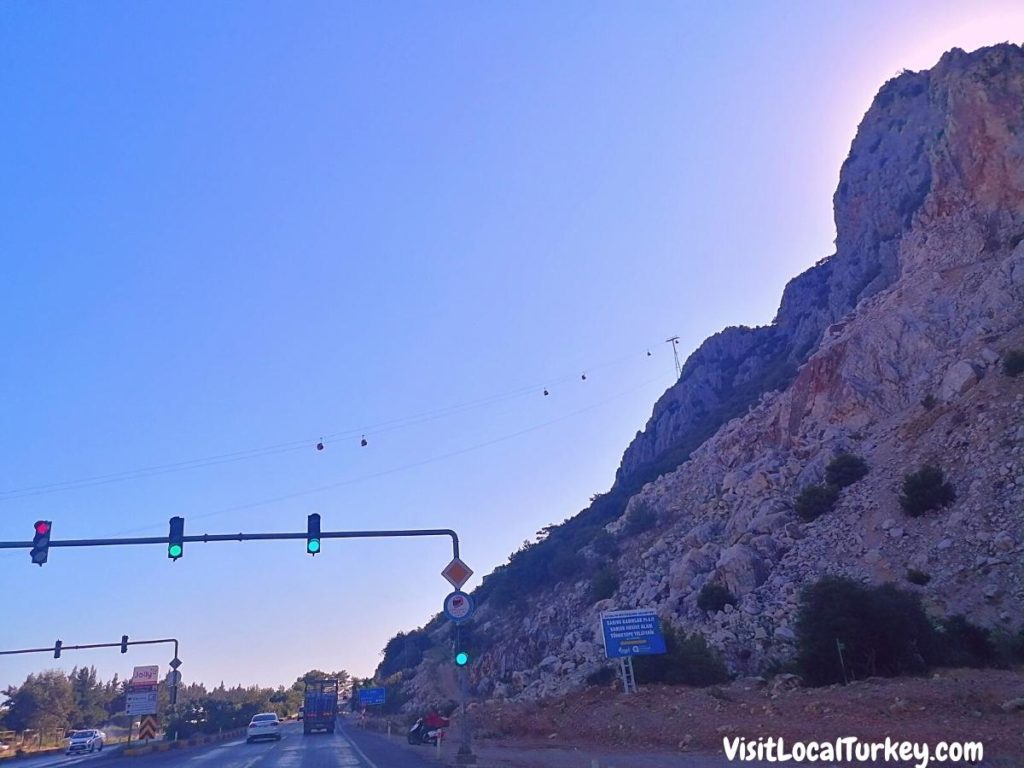
22.5 Should you get the maximum possible insurance when renting a car?
All cars in Turkey are insured by mandatory traffic insurance for damages you may inflict on other people or vehicles. Yet your damages are not covered by this insurance.
For this reason, you should obtain full insurance from your rental company to cover the damages that occurred because of your negligence.
Additionally, mandatory insurance coverage limits may be low to cover all damages in severe cases. I always take full insurance. Better safe than sorry.
Turkey Travel Planning Guide
🚑 Should I buy travel insurance for Turkey?
100% YES! — With basic coverage averaging just $5-10 USD per day, enjoy peace of mind with a plan from SafetyWing, one of the biggest names in travel insurance.
💧Can you drink tap water in Turkey?
Rarely — You’ll want to buy a Water-To-Go Bottle, which filters your drinking water so you don’t get sick from drinking water in Turkey, and helps keep you hydrated while traveling Turkey. (Read more)
🚙💨 Is it safe to rent a car in Turkey?
Yes — Renting a car in Turkey is one of the best ways to explore the seven regions of Turkey! I always rent with Discover Cars, which checks both international companies and local Turkish companies, so you get the best rates. (Read more)
🏩 What’s the best way to book my Turkey accommodation?
For Turkish hotels and hostels, Booking is the best site. If you’re considering an Airbnb, don’t forget also to check VRBO, which is often cheaper than Airbnb!
✈️ What’s the best site to buy flights to Turkey? For finding cheap Turkey flights, I recommend Skyscanner and Google Flights. (Read more about the best Turkish Airline Companies.)
🎫 Do I need a visa for Turkey?
Likely Not — U.S., Canadian, and most European Passport holders don’t need a visa for Turkey but check here to see if you do need a Turkey travel visa.

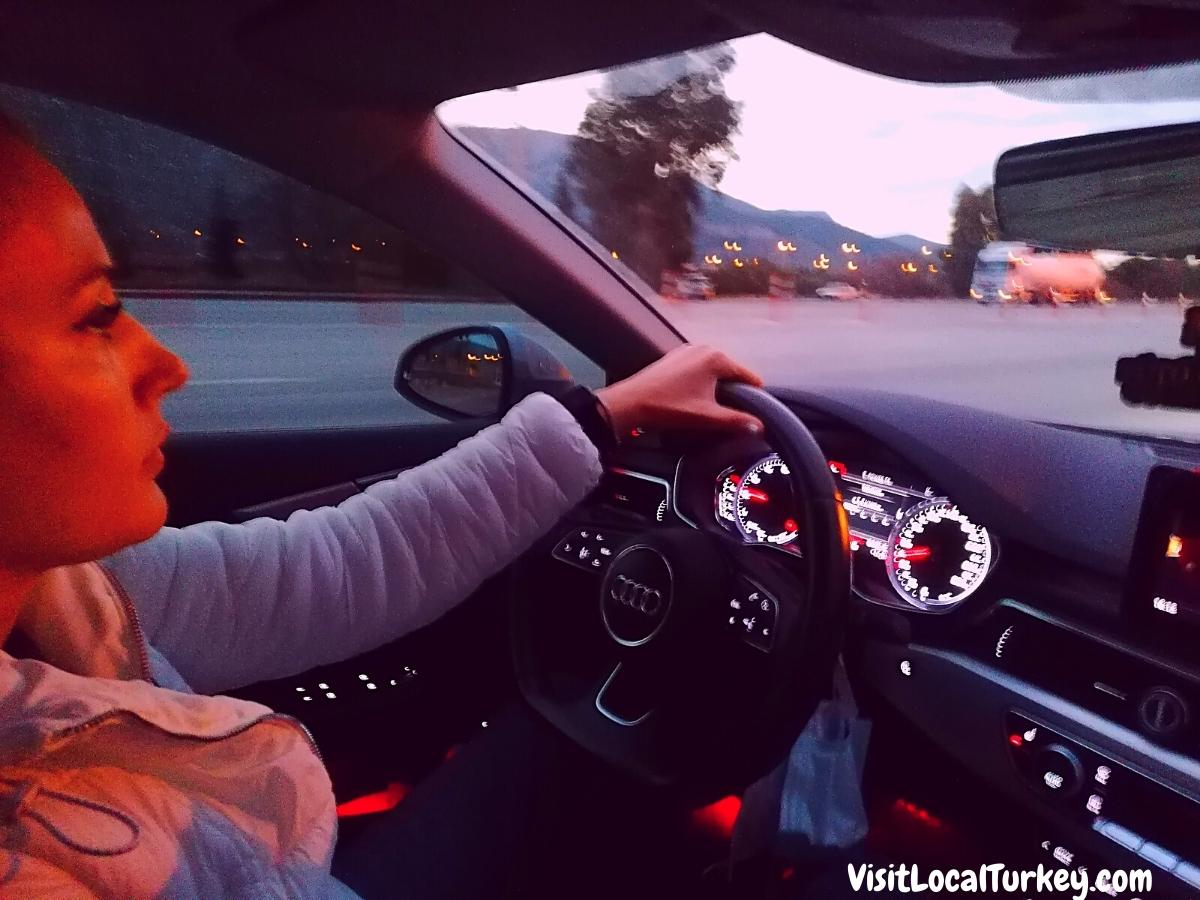

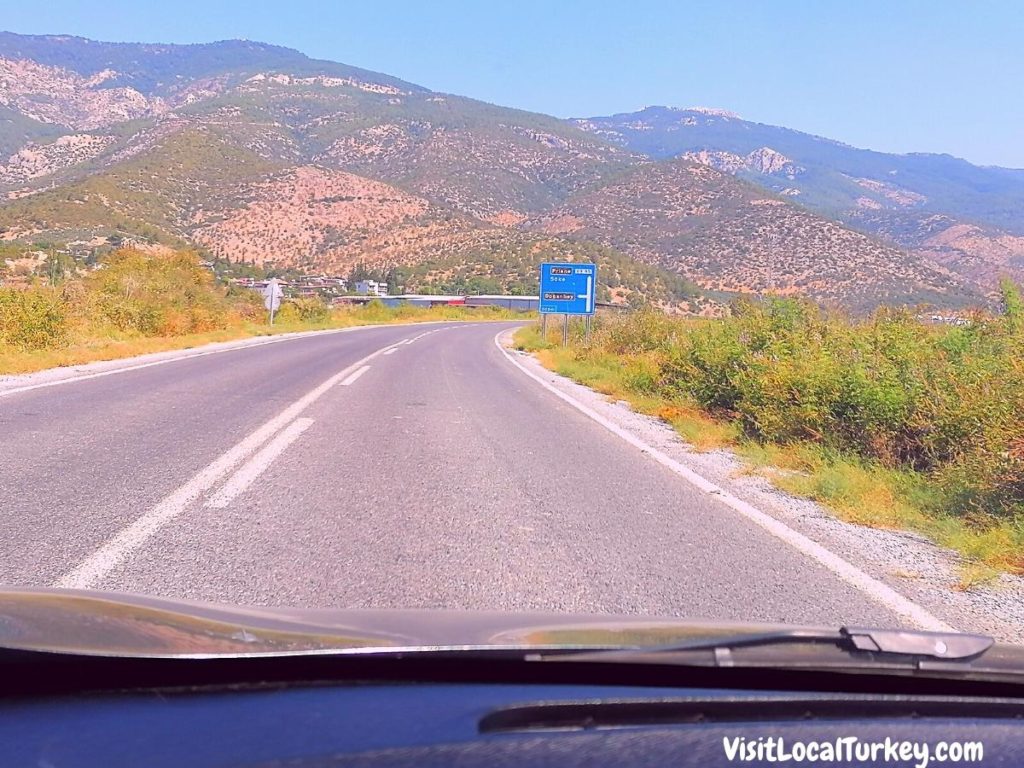

Thank you for the very informative post you provided
Thank you such comments inspire me to continue writing 🙂
Tesukkerederum
So even if I’m staying permenantly in Turkey a foreign licence is valid for 6 months from each time I re-enter Turkey?
This is what I understand from the law. Yet, the regulations may change in time.
This is awesome thank you
Thank you for your kind compliment.
Thank you so much Efe. This was very very helpful. I read the whole article.
I am going to rent a car for the first time out my country, Iran. I have an Iranian driver’s licence, but it is in Persian alphabet. I think it suffices to have it translated to Turkish and notarized right? Because Iran and Turkey have some traffic agreements.
Again, thank you very much for this useful article.
As far as I know, it is correct.
Yet, most up-to-date, information can be obtained from your country’s consulate in Turkey. Everything changes these days.
Thank you! This was a very detailed guide!
Thank you for your helpful information.
I have a question by the way. My family wants to go to Turkey. Can I drive my father’s car with my international driving license? I’ve just heard it is compulsory to drive in your own vehicle in Turkiye, which is quite odd for me!
If you’re bringing your own vehicle, that’s the case, but when renting no. If you bring your own foreign vehicle, you cannot rent or put them into commercial use. That’s the reason behind that law. Hope it makes sense.